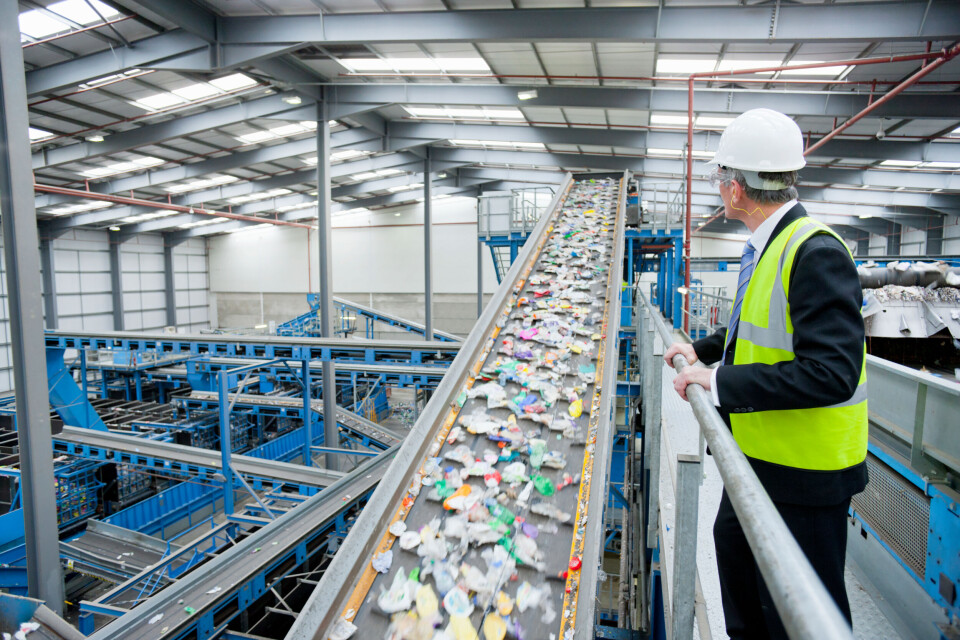-
More than 5,000 French communes use AI to identify poor rubbish sorting
Badly-sorted rubbish can cost millions so communes are turning to high-tech solutions
-
New agreement to help with home renovations launches in Dordogne
The plan aims to connect citizens with local public renovation services to modernise old housing stock
-
White storks make strong return in France via nest ‘platforms’ and clipped wings
The Ligue pour la Protection des Oiseaux shares the conservation challenges in saving these birds from extinction
US firm to build ‘hard-to-treat’ plastic recycling plant in France
Analysts say the government will not hit its target of recycling 100% of plastics by 2025 even with massive investment in the Normandy factory

American chemical giant Eastman is to build an €850million plastic recycling factory in Normandy as part of France’s efforts to achieve sustainability goals.
Plant will take plastics usually sent for incineration
Located alongside the Seine river between Le Havre and Rouen, it is due to open in 2025 and to treat 160,000 tonnes of plastic a year.
Only around 28% of plastic used in France is currently recycled and most analysts say the government’s target of increasing this to 100% by 2025 will fall short by a long way.
Using a patented process, Eastman says it will be able to take hard-to-treat polyester waste.
This includes coloured PET bottles, dirty bottles, opaque plastics and multi-layered plastics, tear-off plastics from food containers, and polyester textiles.
It promises to recycle them to a base product similar to that produced from oil when polyester is first made.
Most of the plastics in the list above currently end up being incinerated, creating air pollution problems, CO2 emissions and toxic ash.
Eastman join other ‘green’ firms at site
The factory will employ 350 people and, indirectly, create another 1,500 jobs in recycling, energy and infrastructure.
The 40-hectare site chosen for the new factory is in an industrial zone called Port Jérôme 2, and is next to a planned Air Liquid factory to make “green hydrogen”.
It will also be just 4km from another, smaller plastics recycling unit being built by the UK company Plastic Energy.
This is designed to recycle 30,000 tonnes of polyethylene a year.
Another company, Loop Industries from Canada, had also announced a polyester recycling factory at Port Jérôme 2 with backing from the French company Suez.
Its European president, Laurent Auguste, said it was still possible that the €300million investment might go ahead, even though it will be next to the Eastman factory.
Eastman get funding incentives
Eastman CEO Mark Costa said, when announcing the factory: “Our molecular recycling operations will need to draw from a highly skilled workforce, and Port Jérôme has that workforce.
“There is also clear leadership in the region that aligns with our strategic direction.
“Like Eastman, Normandy has a clear vision and goals to achieve a circular economy.”
President of the Normandy regional council Hervé Morin said incentives to Eastman to build its factory on the site amounted to €35million from the region and €62million from the French government.
“Eastman’s decision is not a coincidence,” Mr Morin said. “It is the result of several years of effort to strengthen support for foreign comp-anies.
“It is also the result of the emphasis placed by the region on the sustainability of its new industrial facilities.”
He added that Eastman’s project confirms that the economic development of the region, industrial activity, and consideration of environmental issues are compatible.
“This only strengthens the attractiveness of our territory,” he said. The region claims the project is the largest foreign investment in France in the last 30 years.
Existing French market for recycled polyester
Mr Costa met President Emmanuel Macron in January after the company said it was looking at three sites in Europe for its new factory.
Contracts have already been signed for Eastman’s recycled polyester from the factory with a range of cosmetics and food companies, including LVMH Beauty, Estée Lauder Companies, Clarins, Proctor & Gamble, L’Oréal and Danone.
The heavily industrialised corridor along the Seine made headlines in late September 2019 when an engine oil company, Lubrizol, caught fire in Rouen.
Read more: French city on alert after chemical plant blast
The incident sent up a toxic plume of black smoke, which affected people up to 20km away.
Related articles
Ikea, Pfizer, pet care: France confirms €4bn in new foreign investment
French home waste collection charge on rise - who pays this and how?
Water recycling plant in west France first of its kind in Europe
























